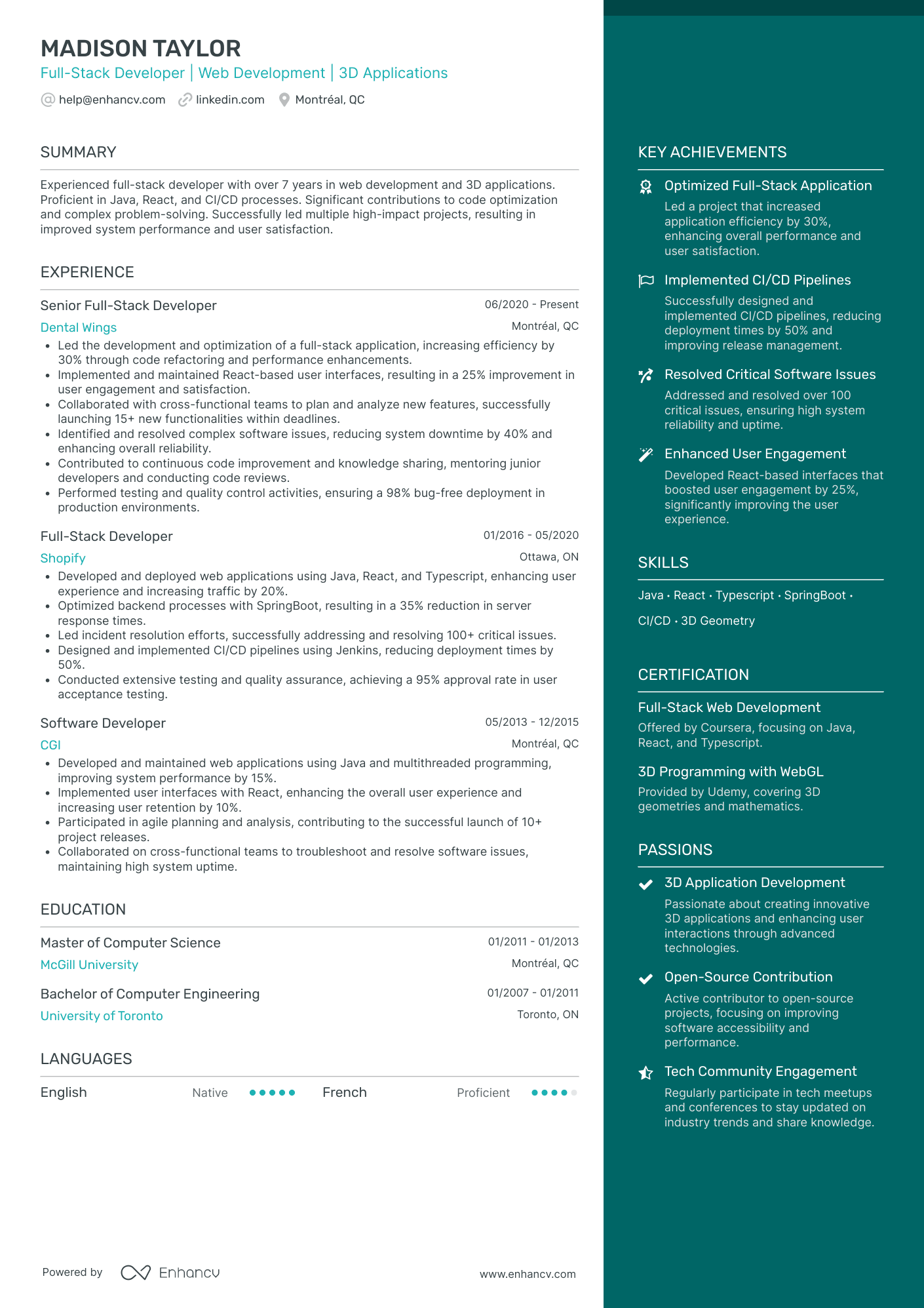Evgeni Asenov
Achievements
- Crashed a van on the company retreat (not his fault, a developer made him do it).
- Loves experimenting (according to developers, not sure what that means).
- Passionate about creating interactive websites and digital experiences.

Elegant
My favorite template:
The Elegant template has a beautiful design and compact, easy-to-read layout that highlights your strengths and achievements.
- The sleek design emphasizes your key strengths and accomplishments.
- Perfect for showcasing both professionalism and personality.
- A two-column resume template featuring a spacious section for experience and a vibrant aqua-colored column for your highlights.

